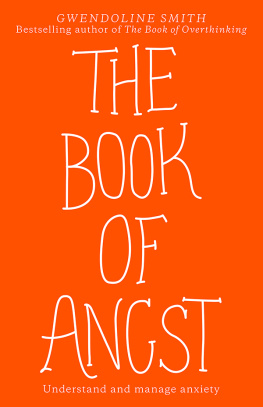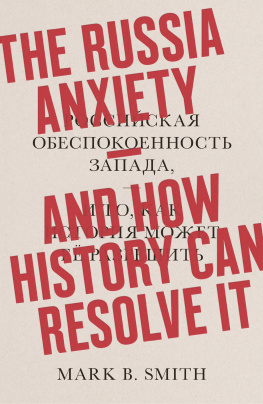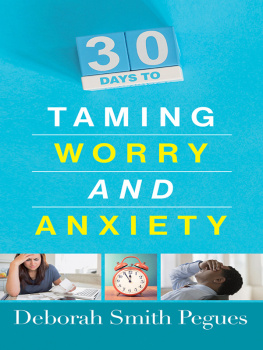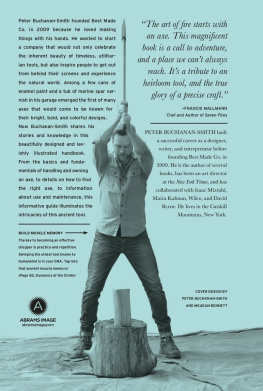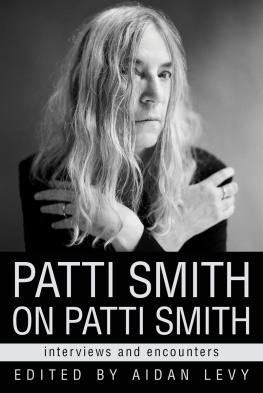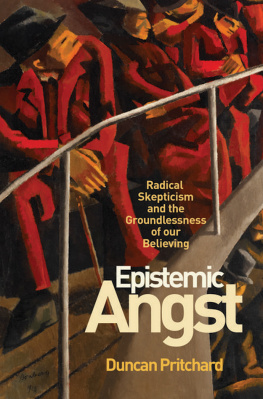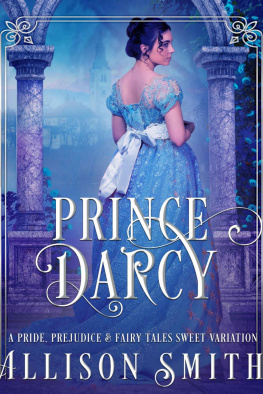Smith - The Book of Angst
Here you can read online Smith - The Book of Angst full text of the book (entire story) in english for free. Download pdf and epub, get meaning, cover and reviews about this ebook. year: 2020, publisher: Allen & Unwin, genre: Home and family. Description of the work, (preface) as well as reviews are available. Best literature library LitArk.com created for fans of good reading and offers a wide selection of genres:
Romance novel
Science fiction
Adventure
Detective
Science
History
Home and family
Prose
Art
Politics
Computer
Non-fiction
Religion
Business
Children
Humor
Choose a favorite category and find really read worthwhile books. Enjoy immersion in the world of imagination, feel the emotions of the characters or learn something new for yourself, make an fascinating discovery.
- Book:The Book of Angst
- Author:
- Publisher:Allen & Unwin
- Genre:
- Year:2020
- Rating:3 / 5
- Favourites:Add to favourites
- Your mark:
- 60
- 1
- 2
- 3
- 4
- 5
The Book of Angst: summary, description and annotation
We offer to read an annotation, description, summary or preface (depends on what the author of the book "The Book of Angst" wrote himself). If you haven't found the necessary information about the book — write in the comments, we will try to find it.
Smith: author's other books
Who wrote The Book of Angst? Find out the surname, the name of the author of the book and a list of all author's works by series.
The Book of Angst — read online for free the complete book (whole text) full work
Below is the text of the book, divided by pages. System saving the place of the last page read, allows you to conveniently read the book "The Book of Angst" online for free, without having to search again every time where you left off. Put a bookmark, and you can go to the page where you finished reading at any time.
Font size:
Interval:
Bookmark:

This common disorder is characterised by persistent and excessive worry about a number of different things. People may anticipate disaster and be overly concerned about money, health, family, work or other issues. Thinking spirals incessantly, activated by the never-to-be-answered question what if ?
In these times of great uncertainty, worry is also at pandemic proportionsa manifestation of Covid-19. People are surrounded by things unknown, and all the elements of life that we once took for grantedsafety, job security, financial securityare now uncertain. And uncertainty is fuel on the fire of worry.
I have observed that people diagnosed with generalised anxiety are more badly afflicted by their worrisome overthinking during the age of Covid-19, and others who have never previously been worriers have now become engaged with the practice.
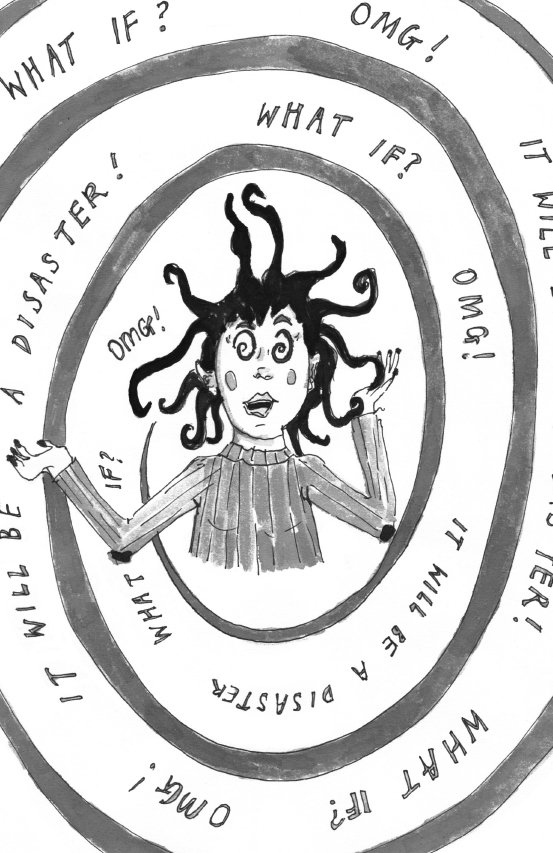
TREATMENT OPTIONS
Medication can be helpful with easing the distressing physical and emotional experiences of anxiety, although it does not offer a treatment per se.
If the long-term effects of the anxiety begin to manifest physicallyfor example, if your worrying is stopping you from sleeping, or you are experiencing gastrointestinal distress because of it (see page xx)a pathway into depression can occur. This is where an antidepressant can be very helpful. If the depression has a significant anxiety component, an antidepressant with an anxiolytic (anti-anxiety) agent will most likely be prescribed.
Note: If you do seek medical advice at this stage, make sure that you explain your levels of anxiety to your doctor. Being prescribed the right type of medication is essential. This is medication for your most important organthe brain. It is not a matter of one size fits all.
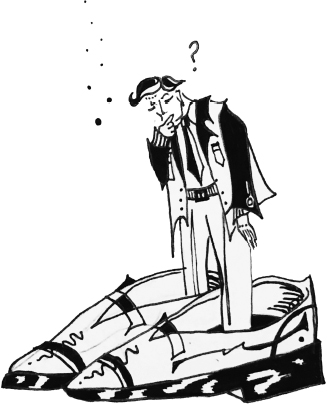
The recognised state-of-the-art intervention for worrisome overthinking is cognitive behavioural therapy (CBT). The treatment strategies work for both pre-existing and new converts (because of Covid-19) to the cyclical nature of worry.
If you relate to this condition and think you might need help, have a look at The Book of Overthinking (also written by me).
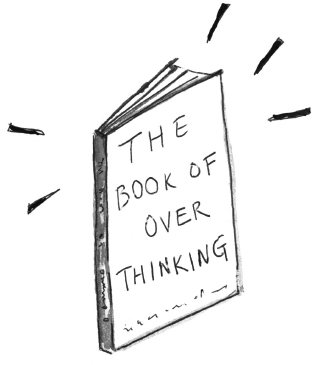
I would like to add that, in my opinion, worry is at the base of most of the various forms of anxiety. The anorexic worries about being fat, someone with OCD may worry about contamination, people with social anxiety worry about being judged.
I mention this because when treating the anxieties via CBT, therapists essentially take a two-pronged approach: addressing the worrisome overthinking alongside the specific content of the fear/phobia. This is very much the case with social anxiety.
Obsessive-compulsive disorder is an anxiety disorder in which sufferers have recurring, unwanted thoughts, ideas or sensations (obsessions) that make them feel driven to do something repetitively (compulsions). It is another profoundly debilitating anxiety condition. In fact once when I was at a neuroscience conference, one of the professors speaking stated that OCD was the most crippling of all of the anxiety conditions.
OCD is an especially difficult condition to treat, whether with medication, talk therapy or behavioural therapy. As a clinician, just when you think you have it nailed, back it comesdifferent thoughts, different behaviours, but the same torture.
In my opinion the reason that OCD is the giant of them all is because of its major genetic component. Overall, studies of twins with OCD estimate that genetics contributes 4565 per cent of the risk of developing the disorder. A number of other factors may play a role in the onset of OCD, including behavioural, cognitive and environmental factors, but genetics is a biggie.
I have watched documentary material of three- and four-year-old children with OCD performing lengthy and complicated rituals that can take them hours to complete, and role-modelling doesnt appear to me to be a significant contributor.
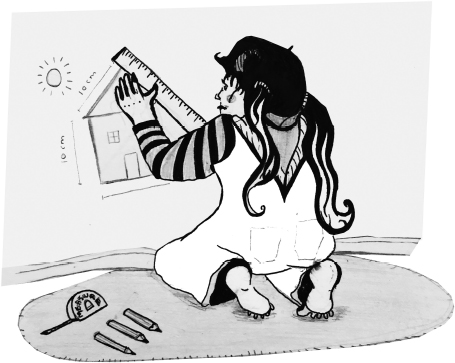
Whatever you do, dont blame yourself for your childs OCD. Even the worst parenting doesnt cause this disorder.
If youre a parent, OCD is not a phase your child is going through. Nor is your son or daughter deliberately misbehaving or trying to get attention. Your child is not to blame.
Perhaps most importantly, its not your fault if your child has OCD. OCD is a neurobiological disorder, which means that the brain of a child with OCD functions differently than the brain of a child who does not have OCD.
I have been practising for many, many years, and there have been phases in the psychological world of blaming parenting for children developing disorders such as OCD. During one such phase, which I recall occurring in the 1970s and beyond, there was very little acknowledgement of the complex relationship between nature and nurture, and that it was not either/or.
OCD manifests in many ways:
checking
fear of contamination
(fear of germs)
hand - washing
hoarding
rumination
(thoughts going round in circles)
intrusive thoughts.
When you look at this list you can begin to understand the profoundly destructive impact that OCD has on the daily lives of these poor souls and their families. Compulsive checking can go on for hours; extreme hoarding splits families and ruins lives. You can also begin to imagine the havoc that Covid-19 has created in the lives of people who struggle to live with OCD.
You cant ask an individual who compulsively washes their hands as a result of contamination phobia to stop doing it when the message to the entire globe is wash, wash and wash your hands again. The difference is that the compulsive hand-washer will scrub their hands until they bleedstanding fixated at the basin for hours, paralysed by fear.
The OCD brain demands the behaviour continues. Stopping results in unbearable anxiety for the afflicted. The only way to reduce the anxiety is to begin the ritual and repeat it again and again.
You see, it is the subjective experience of the anxiety that the individual wishes to escape. The worrisome, intrusive thoughts about contamination, or lack of symmetry, or throwing things away, create the anxiety, and then the compulsions are continued in an attempt to provide safety from the distress.
TREATMENT OPTIONS
Medication is almost always an option. However, I dont know of any medications that can cure OCD. The options are SSRIs (selective serotonin reuptake inhibitors) or their new cousin SNRIs (serotonin-noradrenaline reuptake inhibitors), the difference being that the newer SNRIs work on both noradrenaline as well as serotonin in the brain.
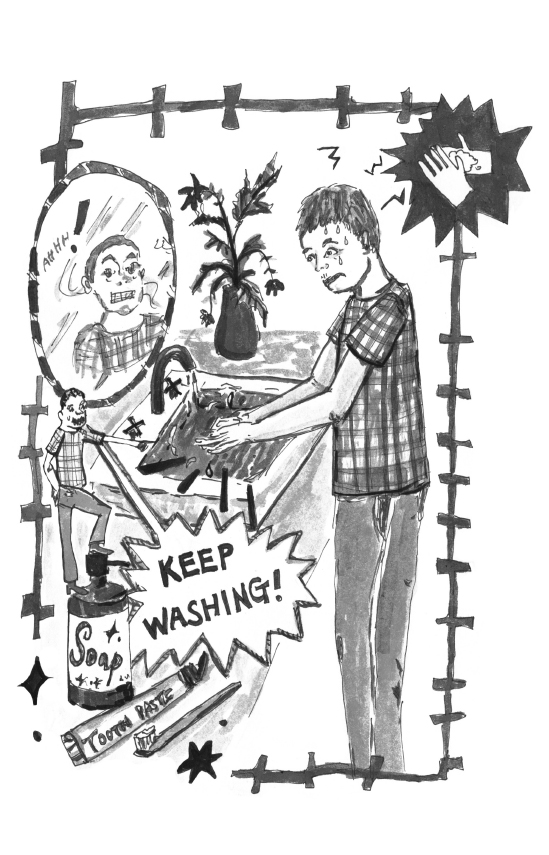
In my experience, both do offer a certain amount of symptomatic relief. However, some of the older generation of medications (tricyclics) have also worked well, particularly if the condition is not too severe. I have also seen the augmentation
Next pageFont size:
Interval:
Bookmark:
Similar books «The Book of Angst»
Look at similar books to The Book of Angst. We have selected literature similar in name and meaning in the hope of providing readers with more options to find new, interesting, not yet read works.
Discussion, reviews of the book The Book of Angst and just readers' own opinions. Leave your comments, write what you think about the work, its meaning or the main characters. Specify what exactly you liked and what you didn't like, and why you think so.

